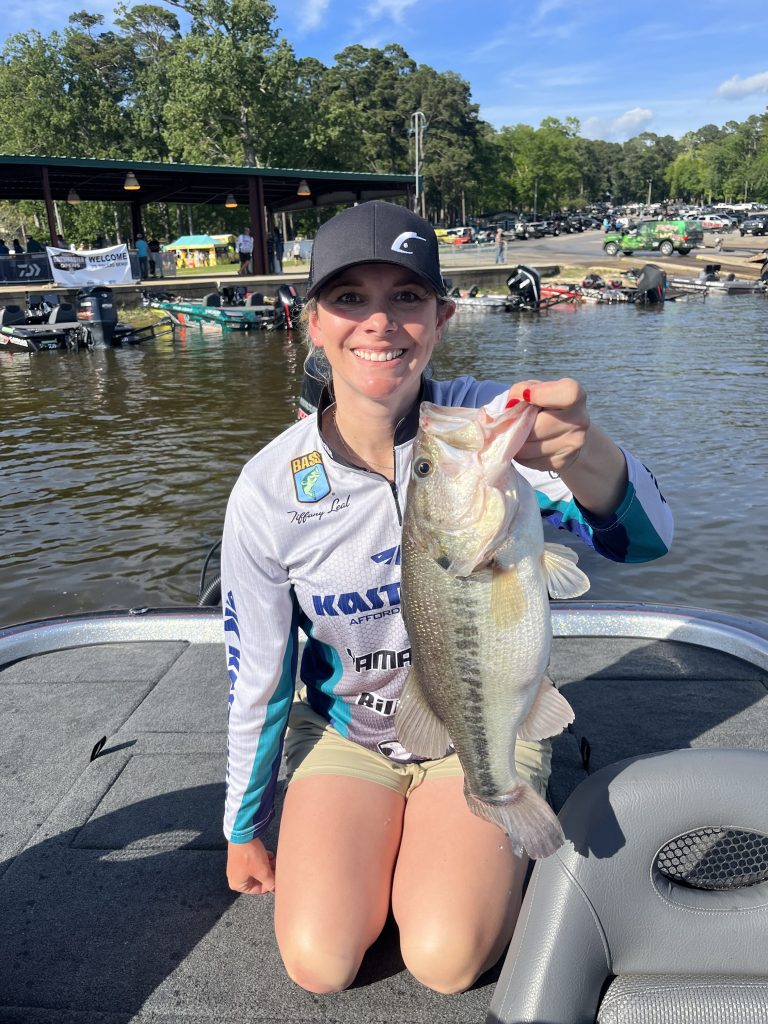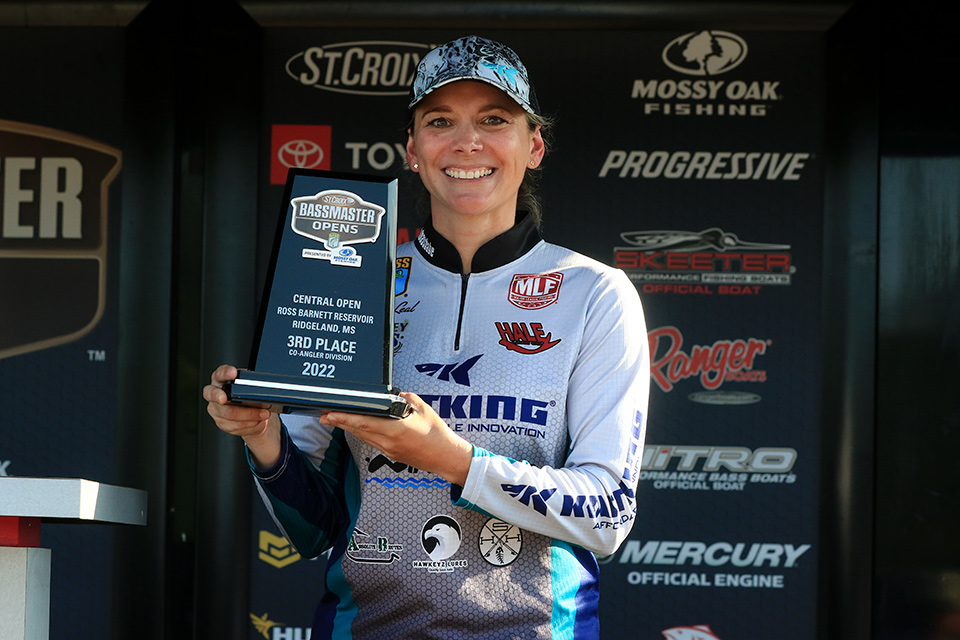
Introduction to fishing
Most people assume I learned to fish from my dad or a boyfriend, but I always loved fishing and learned mostly by trial and error. Growing up, I was a tomboy, and I mainly fished stock ponds at my family’s ranch or the rivers while camping. I just had a knack for it and would often catch the most fish or the biggest fish.
Later in life, in 2019 and 2020, I went through some significant personal struggles and turned to fishing as a time to reflect while doing something I enjoyed. Fishing became my salvation and a way of life. It started as a weekly hobby and transformed into a daily passion. I started a social media account which led to some partnerships and promotional opportunities for fishing companies.
I eventually transitioned from fishing farm ponds to tournament fishing in Feb. 2021. Once I fished my first tournament, I was completely taken with it. I am a very competitive person by nature, and tournament fishing provides me with the opportunity to satisfy my need for competition while doing something I love.

Experiences and challenges
As a woman in the fishing industry, especially in the tournament fishing realm, I have experienced so much kindness and support. When I started tournament fishing, I had no idea what I was doing. I literally just jumped right in as a co-angler. I have tried to use my co-angler experiences to gain as much insight and knowledge as I can. So many of the boaters I have fished with tolerated my incessant questioning and have become friends.
I remember my first tournament; I was nervous and felt a bit out of place. I told my boater I was “just a pond fisherman,” and he looked right at me and said “fishing is fishing.” That gave me a little courage that day, and those words have stuck with me over the last few years, as my level of tournament fishing evolved, and they remind me to not lose sight of the fact that I am just fishing.
My negative experiences as a female angler mainly stem from social media interactions. Social media is two sides of a coin — on the one side, social media has provided me opportunities to develop partnerships with companies, network with other anglers from all over the world. and learn new techniques. On the other side, I often get inappropriate comments and messages that promptly get blocked on my social media accounts.
It is disenfranchising to think that women anglers often encounter and are subjected to this type of behavior online. I am a grown woman and have a very strong backbone, so I do my best not to internalize or allow these types of behaviors to affect me. But it is concerning to me for younger women starting out in the sport to not be affected or discouraged by the inappropriate and marginalizing comments.
Quite frankly, I have never felt uncomfortable with any of the boaters I drew. I am often the only woman, or one of very few, fishing the Opens, but I feel I get treated the same as any other co-angler and have encountered nothing but support. My greatest support comes from many of the other co-anglers. While on the trail, I house with a group of other co-anglers (all male), who are some of the best co-anglers in the country. Even though we are competing against each other, and all want house bragging rights, we share our experiences, teach and learn from each other, and lift each other up.

Support systems
The Women’s Fishing Federation, which primarily focuses on kayak fishing, is a great group of women anglers. I attended their retreat a couple of years ago. Social media has also provided opportunities for me to network and meet other female anglers from all over the country and world, many of whom I have become friends with and eventually met in person both to fish with and at industry events such as the Classic Expo and ICAST.
It is always great to connect with other women in the industry. Often during tournaments, I am the only female angler, and it would be amazing to someday look at all those boats and find more women in the field. Having a support system is extremely impactful to my experience as an angler.
It helps me to have other anglers to share our knowledge, techniques and experiences. It also provides an outlet to talk about a hard day on the water or brainstorm on how to improve. Fishing is not just about competition or catching fish. For me, it is about having a community that supports and encourages each other.

Personal achievements
I am particularly proud of placing third as a non-boater in the 2022 B.A.S.S. Open on Ross Barnett, Mississippi. This tournament was my first-ever B.A.S.S. Open and a very tough two days of fishing, but I was able to fish my strengths and my style.
I love dirty, shallow-water fishing, and we were in the mud on Day 1 and the grass on Day 2. Standing on that podium holding that trophy was one of the best feelings I have had as an angler. Since that day, I have strived to get back up there and hoist that first-place trophy.

Advice for aspiring female anglers
Ask questions. It is OK to admit you do not know something. Especially starting out, you are not going to know everything. Do not let your pride or embarrassment prevent you from learning and expanding your knowledge about fishing. I promise, the men and women fishing with you will not think any less of you if you ask for help or want to learn.
As an example of taking my own advice, I did not grow up around boats. It just wasn’t something my family did; we never owned a boat. So, jumping to the boater side of tournament fishing is extremely intimidating for me. But it is something I absolutely want to do and want to learn. I asked for help. I asked my boyfriend to teach me how to drive a boat, back a trailer and work the electronics.
One year later, I just bought my first boat. And together, we are fishing a team trail so I can get confidence in my boating skills on tournament waters before I solo fish a tournament. The moral of this story: It is fine to admit you don’t know everything and rely on others to help, whether that is learning a new fishing technique or driving a boat.
You can follow Tiffany on Instagram: @txbassbabe




